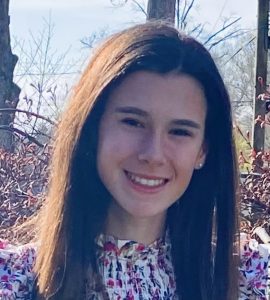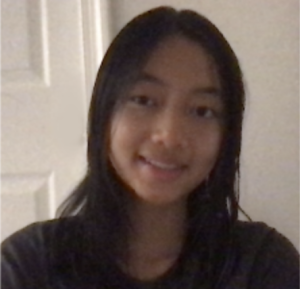Teen Science Café: Science and Technology Public Policy
By Ivy McConarty and Myla Leung, Teen Science Café
The Bethesda Green Teen Science Café is a free, fun way for teens to engage in lively conversations with STEM experts about environmental issues. Run by and for high school students, the Bethesda Green Teen Science Café hosts chats with guest speakers in which participants learn about advances in environmental science and technology and gain exposure to different careers in the environmental field. The following is a summary of the session hosted on Friday, January 27th with Cherilyn Pascoe of the National Institute of Standards and Technology.
From accelerating the creation of laser tracker measurement systems to co-inventing Closed Captioning, the National Institute of Standards and Technology (NIST) has played a large role in the fields of cybersecurity and technology.
In her presentation, Cherilyn Pascoe, a Senior Technology Advisor at NIST, discussed the drivers and take-aways in advancing public policy from her long history of working on Capitol Hill and at NIST. The event, titled “Science and Technology Public Policy” was held on Friday, January 27th in the evening. The event consisted of two components: a presentation and Q&A session.
Pascoe’s position involves advising NIST on technology policy and strategy, ranging from cybersecurity to artificial intelligence. She is also in charge of the NIST Cybersecurity Framework program, and is a team member of the NIST AI Risk Management Framework development. Because of her leading role with the Cybersecurity Framework, she has traveled around the world, meeting with foreign governments and discussing cybersecurity in their nations. She is excited about what the AI framework will be able to accomplish! Not only has Pascoe had an impressive career at NIST, but also on Capitol Hill. Prior to joining NIST, Pascoe worked for the Senate Committee on Commerce, Science, and Transportation for over a decade. While working on the Hill, she was a leading force in efforts to create and advance legislation including the U.S. Innovation and Competition Act and the AV Start Act.
During her presentation, Pascoe gave an overview of her exciting career in Congress and at NIST. Starting with her job surrounding technology legislation, she explained the complex road of a bill becoming a law through three key steps: policy, politics, and process.
The first step, policy, as she described was the need for community engagement. On the Hill, Pascoe worked with hundreds of different perspectives and interests in both the Democratic and Republican umbrella, companies, and the general public. Diving deeper in explaining her role with the AV Start Act, she highlighted the automotive manufacturers, tech companies, and consumer groups that played a role in the development of the bill through their opinions and points of view.
Pascoe then discussed the politics step, which involves compromising with the competing values and interests of congress people and stakeholders. The AV Bill never reached the lawmaking finish line due to the political process; the bill didn’t win favor with congress. The connection of STEM and government continued after Pascoe stopped working on the Hill, moving to NIST, a federal agency in the U.S. Department of Commerce. With NIST, she has continued working with groups with different drive factors, specifically on the topic of cybersecurity and artificial intelligence.
Helping create the cybersecurity framework and being a member of the AI framework, she has helped form a structure of guidelines addressing the need for safety and security while working with these growing, advanced technologies. With the rise of use in technology, cybersecurity is pivotal in preventing cyber attacks. It protects organizations and individuals from data breaches, identity theft, phishing, and other forms of cyber crime, and it builds a culture of trust and reliability.
Pascoe also discussed her career journey with participants interested in STEM careers. Pascoe was interested in chemistry out of high school, and attended the University of Michigan earning a B.S. in chemistry and women’s studies. It wasn’t until after a chemistry fellowship at the University of Strathclyde in Scotland that she realized chemistry wasn’t the career path for her, and instead went back to school at GW University earning a MA in science and technology policy. Her journey in discovering the career for her in the science field reveals the near infinite pathways you can take in STEM!
Thank you to Ms. Pascoe for taking the time to deliver an amazing presentation!
If you are a teen interested in STEM research, NIST offers a summer internship for juniors and seniors. Applications can be found on the NIST internship website, and the eight week program is an incredible opportunity to work with NIST leaders on a research project!
Learn how to get involved with the Teen Science Café here.
About the Authors:
 Ivy McConarty, Teen Science Café Secretary
Ivy McConarty, Teen Science Café Secretary
Ivy is passionate about finding creative solutions to make a sustainable future in her community. She has a love for math and engineering and is interested in discovering ways to use her skills to help the environment.
 Myla Leung, Teen Science Café Outreach Officer
Myla Leung, Teen Science Café Outreach Officer
Myla is a student at Winston Churchill High School and has always had a strong interest in environmental science and sustainability. She’s excited to be a part of the Teen Science Cafe team, and is looking forward to learning about ways we can protect our environment.
Interested in getting involved with the Teen Science Café? Learn more.





